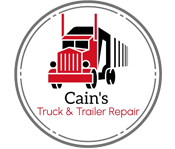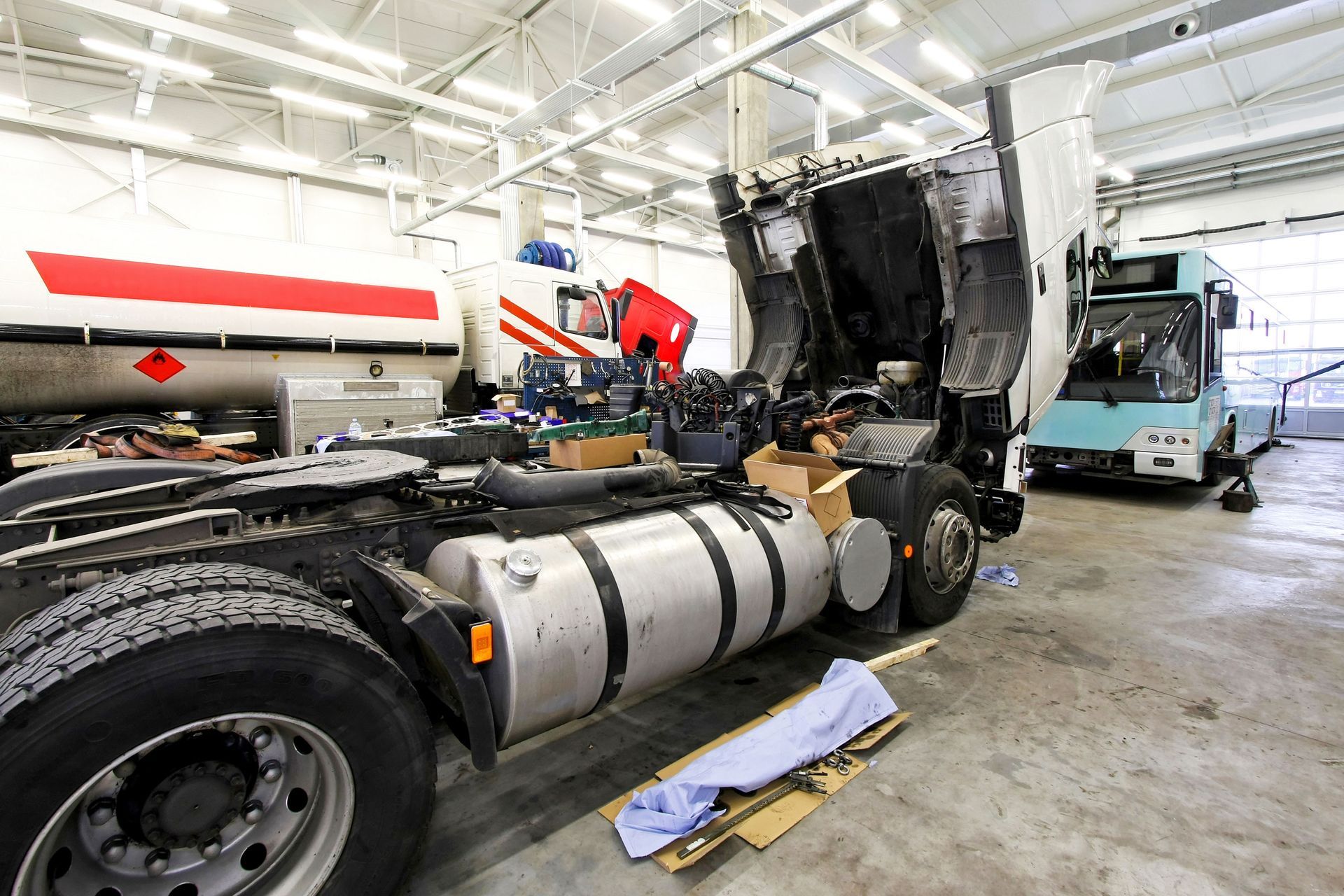6 Ways Preventative Maintenance Protects Your Truck
Preventative maintenance is essential for keeping your truck safe, efficient, and reliable. Regular attention to key systems not only extends the lifespan of your vehicle but also reduces costly repairs and downtime. By implementing scheduled inspections and upkeep, truck operators can maintain optimal performance and protect their investment. Key preventative measures include Truck DOT inspections, filter replacements, tire and brake checks, and greasing the truck, all of which contribute to safer and more efficient operation. These practices are not just recommended—they are necessary for any serious operator who wants to maximize vehicle life and avoid costly breakdowns. Regular preventative maintenance also ensures your truck remains compliant with federal regulations, reducing the risk of fines and roadside delays, which can have a significant impact on operational costs.
1. Ensures Compliance
Truck DOT inspections are a critical step in ensuring compliance with federal safety regulations. According to Truck Info, about 16% of U.S. truck drivers are owner-operators, making it especially important for these operators to maintain their trucks regularly. DOT inspections cover a wide range of safety aspects, including lights, brakes, steering components, suspension, and fluid systems. Neglecting these inspections can lead to citations, fines, or, worse, accidents that could have been prevented. For owner-operators, adhering to DOT inspection schedules not only keeps their vehicles legal but also protects their livelihood by minimizing downtime from unplanned repairs.
During a DOT inspection, technicians thoroughly examine your truck to detect early signs of wear, corrosion, or mechanical failure. Components that may seem minor, such as signal lights or fluid levels, can have significant consequences if ignored. By performing these inspections regularly, operators can address small issues before they escalate into major repair projects. This proactive approach reduces unexpected downtime and aligns with effective semi truck repair strategies, ensuring trucks remain safe and operational across long hauls. Additionally, maintaining detailed inspection records enhances credibility with clients, leasing companies, and insurance providers, proving that the vehicle has been responsibly maintained.
2. Supports Engine Health
Filters, including air, fuel, and oil filters, are vital for engine health and performance. Over time, filters accumulate debris that can reduce efficiency and damage engine components. Air filters prevent dust, dirt, and debris from entering the engine, protecting internal parts and ensuring smooth combustion. Fuel filters remove impurities that could clog fuel injectors or damage the fuel pump, while oil filters trap metal shavings and contaminants in the engine oil, keeping the lubrication system clean. Each of these filters plays a critical role in preventing engine wear, maintaining performance, and reducing the risk of costly repairs.
Regular replacement of filters ensures clean airflow and fuel delivery, supporting optimal engine operation. Neglecting filter maintenance can lead to decreased fuel efficiency, increased emissions, and higher engine operating temperatures. For long-haul drivers, this can result in significant fuel costs and reduced engine lifespan. Replacing filters at manufacturer-recommended intervals is a relatively low-cost preventative measure that has significant long-term benefits. Incorporating filter maintenance into a routine semi truck repair schedule ensures that the truck runs efficiently, prevents damage to critical components, and supports environmental compliance by reducing emissions.
3. Enhances Safety and Performance
Inspecting tires is crucial for safety, fuel efficiency, and overall performance. Proper tire pressure reduces rolling resistance, improving fuel economy and prolonging tire life. Tires that are under-inflated or over-inflated can lead to uneven wear, reduced traction, and increased risk of blowouts. Routine visual inspections help detect cuts, punctures, uneven tread wear, or sidewall damage before these issues escalate. Rotating tires regularly and checking alignment also ensures even wear and extends overall tire lifespan, reducing replacement costs over time.
In addition to safety and cost benefits, proper tire maintenance enhances operational efficiency. Well-maintained tires improve fuel economy and handling, especially in challenging conditions such as wet or uneven road surfaces. For owner-operators, tire maintenance is a critical component of preventative semi truck repair, as unexpected tire failure can result in expensive repairs, fines, and lost revenue. Documenting tire inspections and pressure checks also provides evidence of responsible maintenance practices, which can be beneficial for insurance claims or fleet audits. Ultimately, consistent tire care ensures safer and more reliable operations across every mile driven.
4. Protects Brake Function
Brakes are one of the most critical safety components of any truck. Regular inspection of brake pads, rotors, calipers, and brake lines ensures the braking system functions properly, especially during heavy loads or emergency stops. Worn brake pads, low brake fluid, or damaged brake lines can compromise stopping power, leading to accidents or costly downtime. Preventative brake maintenance identifies these problems early, allowing operators to replace or repair components before they become safety hazards.
For semi truck repair, consistent brake inspections are a non-negotiable element of preventative maintenance. Addressing minor issues, such as uneven pad wear or slight fluid leaks, prevents larger failures that could lead to major system overhauls. Brake maintenance also contributes to smoother handling and ride comfort, as a well-maintained braking system works in harmony with suspension and steering components. For owner-operators, this routine care provides peace of mind and ensures the truck meets safety standards for both local and interstate travel.
5. Maintains Moving Parts
Greasing the truck is essential for maintaining moving parts such as suspension joints, steering components, drive shafts, and fifth wheel connections. Proper lubrication reduces friction, prevents premature wear, and ensures that mechanical systems operate efficiently. Skipping this step can lead to costly mechanical failures, decreased performance, and unsafe driving conditions. Routine greasing also protects components from rust, corrosion, and damage caused by road debris or environmental factors.
Owner-operators benefit significantly from including greasing in their preventative maintenance routines. Regular lubrication supports overall vehicle longevity, reduces downtime, and prevents unexpected repair bills. It also improves handling and performance, especially when carrying heavy loads over long distances. By incorporating greasing and lubrication into their semi truck repair schedules, operators can maintain reliability and extend the life of critical components, making it a vital part of truck upkeep.
6. Extends Vehicle Performance and Reliability
Implementing these preventative measures—Truck DOT inspections, filter maintenance, tire and brake inspections, and greasing—helps extend the lifespan of your truck and reduces the likelihood of major repairs. Routine maintenance keeps the truck operating at peak efficiency, improving fuel economy, reliability, and safety. Operators who maintain a consistent schedule of preventative care experience fewer breakdowns, lower operational costs, and less downtime. This proactive approach to truck care is essential for any business relying on commercial vehicles.
Beyond cost savings and compliance, regular maintenance improves overall vehicle performance. Engines run smoother, braking is more responsive, tires last longer, and suspension components remain reliable. For owner-operators, these benefits translate directly into fewer disruptions on the road, better service delivery, and higher earnings potential. Preventative maintenance is not just a recommendation—it is a crucial strategy for ensuring consistent semi truck repair and long-term vehicle dependability.
Cain's Truck and Trailer Repair offers comprehensive preventative maintenance services designed to keep your truck running efficiently and safely. Our experienced technicians provide thorough inspections, filter replacements, tire and brake checks, and more. By incorporating these services into regular maintenance schedules, trucks remain compliant, reliable, and efficient. Preventative semi truck repair reduces unexpected repair costs, ensures safety, and enhances vehicle longevity. Contact Cain's Truck and Trailer Repair today to schedule your maintenance and keep your fleet road-ready for every journey.






Share On: